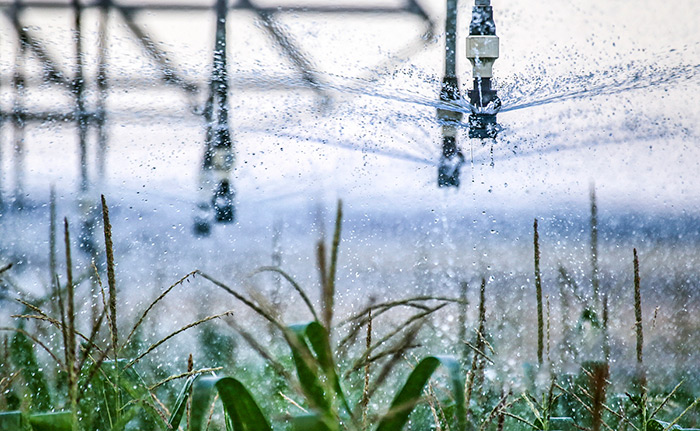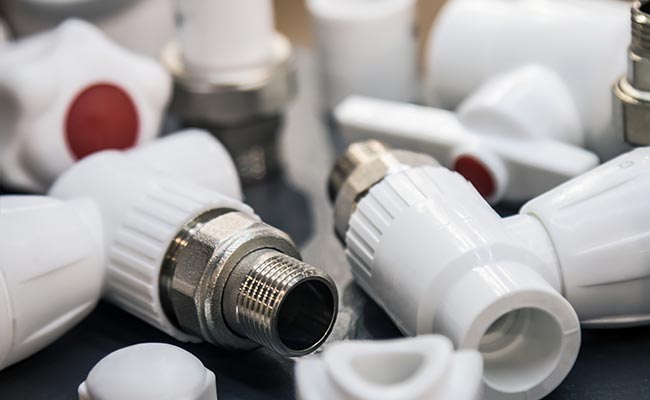توهان کي هڪ والو چونڊڻ جي ضرورت آهي، پر پيتل ۽ پي وي سي اختيارن ۾ وڏي قيمت جو فرق آهي. غلط والو چونڊڻ سان زنگ، ليڪ، يا تمام گهڻو خرچ ٿي سگهي ٿو.
مکيه فرق مواد ۾ آهي: پي وي سي هڪ هلڪو وزن وارو پلاسٽڪ آهي جيڪو زنگ کان مڪمل طور تي محفوظ آهي ۽ ٿڌي پاڻي لاءِ مثالي آهي. پيتل هڪ ڳرو، مضبوط ڌاتو مصر آهي جيڪو تيز گرمي پد ۽ دٻاءُ کي برداشت ڪري سگهي ٿو پر وقت سان گڏ خراب ٿي سگهي ٿو.
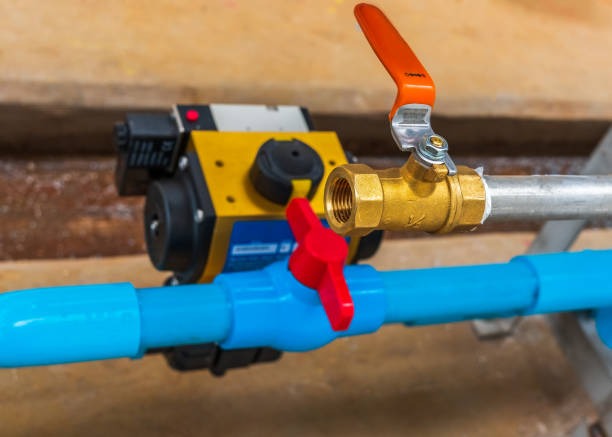
هي شايد سڀ کان عام سوال آهي جيڪو مون کي ملندو آهي. مان ان تي انڊونيشيا ۾ هڪ خريداري مئنيجر، بڊي سان بحث ڪري رهيو هوس. هن کي پنهنجي سيلز ٽيم کي پنهنجن گراهڪن لاءِ واضح، سادو جواب ڏيڻ جي ضرورت آهي، جيڪي هارين کان وٺي پلمبرن ۽ پول بلڊرز تائين آهن. هن جا بهترين نمائندا صرف پرزا نه وڪڻندا آهن؛ اهي مسئلا حل ڪندا آهن. ۽ مسئلو حل ڪرڻ جو پهريون قدم اوزارن جي وچ ۾ بنيادي فرق کي سمجهڻ آهي. جڏهن پيتل بمقابله پي وي سي جي ڳالهه اچي ٿي، ته فرق تمام وڏا آهن، ۽ صحيح چونڊڻ هڪ محفوظ، ڊگهي عرصي واري نظام لاءِ اهم آهي. اچو ته ان کي ٽوڙي ڇڏيون جيڪو توهان کي ڄاڻڻ جي ضرورت آهي.
ڪهڙو بهتر پيتل يا پي وي سي بال والو آهي؟
توهان ٻه والو ڏسي رهيا آهيو، هڪ سستو پلاسٽڪ ۽ ٻيو مهانگو ڌاتو. ڇا ڌاتو وارو واقعي اضافي پئسن جي لائق آهي؟ غلط چونڊ هڪ مهانگي غلطي ٿي سگهي ٿي.
ڪو به مواد عالمگير طور تي بهتر ناهي. پي وي سي corrosive ماحول ۽ سڀني معياري ٿڌي پاڻي جي استعمال لاءِ بهتر انتخاب آهي. پيتل تيز گرمي پد، تيز دٻاءُ، ۽ جڏهن جسماني طاقت اولين ترجيح هجي ته بهتر آهي.
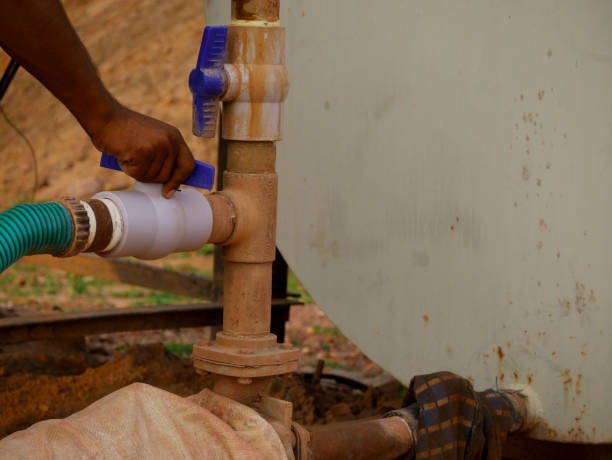
ڪهڙو "بهتر" آهي اهو سوال هميشه مخصوص ڪم تي اچي ٿو. بڊي جي ڪيترن ئي گراهڪن لاءِ جيڪي ساحل تي آبي زراعت جا فارم ٺاهي رهيا آهن، پي وي سي تمام گهڻو بهتر آهي. لوڻ واري هوا ۽ پاڻي پيتل جي والوز کي خراب ڪري ڇڏيندو، جنهن جي ڪري اهي ڪجهه سالن اندر پڪڙي ويندا يا ليڪ ٿي ويندا. اسان جوپي وي سي والوزلوڻ کان مڪمل طور تي متاثر نه ٿيندا آهن ۽ ڏهاڪن تائين رهندا. تاهم، جيڪڏهن ڪو گراهڪ گرم پاڻي جي هيٽر لڳائڻ وارو پلمبر آهي، ته پوءِ پي وي سي هڪ آپشن ناهي. اهو نرم ٿي ويندو ۽ ناڪام ٿي ويندو. انهي صورت ۾، پي وي سي صرف صحيح انتخاب آهي ڇاڪاڻ ته ان جي اعلي گرمي برداشت جي ڪري. پي وي سي ڊيزنڪيفڪيشن کان پڻ محفوظ آهي، هڪ اهڙو عمل جتي ڪجهه پاڻي جا قسم پيتل مان زنڪ کي ليچ ڪري سگهن ٿا، ان کي ڀُرڻ وارو بڻائي سگهن ٿا. اڪثر ٿڌي پاڻي جي ڪمن لاءِ، پي وي سي بهتر ڊگهي مدت جي اعتبار ۽ قدر پيش ڪري ٿو.
پي وي سي بمقابله پيتل: ڪهڙو بهتر آهي؟
| خاصيت | پي وي سي بهتر آهي ... | پيتل ان لاءِ بهتر آهي… |
|---|---|---|
| گرمي پد | ٿڌي پاڻي جا نظام (< 60°C / 140°F) | گرم پاڻي ۽ ٻاڦ جا نظام |
| سنکنرن | لوڻ وارو پاڻي، ڀاڻ، هلڪو ڪيميڪل | پيئڻ جو پاڻي متوازن پي ايڇ سان |
| دٻاءُ | معياري پاڻي جو دٻاءُ (150 PSI تائين) | تيز دٻاءُ واري هوا يا سيال |
| قيمت | وڏي پيماني تي منصوبا، بجيٽ جي لحاظ کان نوڪريون | وڌ ۾ وڌ طاقت جي ضرورت واريون ايپليڪيشنون |
ڪهڙو بهتر پيتل يا پي وي سي فوٽ والو آهي؟
توهان جو پمپ مسلسل پنهنجو پاور وڃائي رهيو آهي، توهان کي ان کي مسلسل ٻيهر شروع ڪرڻ تي مجبور ڪري رهيو آهي. توهان کي هڪ فوٽ والو جي ضرورت آهي جيڪو ناڪام نه ٿيندو، پر اهو پاڻي هيٺ ۽ نظر کان ٻاهر هوندو.
گھڻن واٽر پمپ ايپليڪيشنن لاءِ، پي وي سي فوٽ والو تمام گهڻو بهتر آهي. اهو هلڪو وزن آهي، جيڪو پائپ تي دٻاءُ گهٽائي ٿو، ۽ پيتل جي برعڪس، اهو زنگ ۽ سنکنرن کان مڪمل طور تي محفوظ آهي جيڪي اڪثر فوٽ والو جي ناڪامي جو سبب بڻجن ٿا.
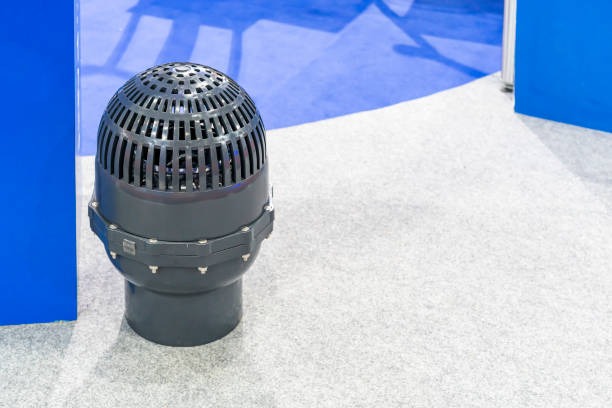
هڪ پير جو والو هڪ سخت زندگي گذاري ٿو. اهو هڪ کوهه يا ٽانڪي جي تري ۾ ويٺو آهي، مسلسل پاڻي ۾ ٻڏي ويندو آهي. اهو سنکنرن کي ان جو نمبر ون دشمن بڻائي ٿو. جڏهن ته پيتل سخت لڳي ٿو، هي مسلسل ٻڏڻ اهو آهي جتي اهو سڀ کان وڌيڪ خطرناڪ آهي. وقت سان گڏ، پاڻي ڌاتو کي خراب ڪندو، خاص طور تي نازڪ اندروني اسپرنگ يا قبضي جي ميڪانيزم، جنهن جي ڪري اهو کليل يا بند ٿي ويندو آهي. والو يا ته پرائم کي رکڻ ۾ ناڪام ٿئي ٿو يا پاڻي کي وهڻ کان بلڪل روڪي ٿو. ڇاڪاڻ ته پي وي سي هڪ پلاسٽڪ آهي، اهو صرف زنگ نه ٿو لڳائي سگهي. اسان جي پنٽيڪ فوٽ والوز جا اندروني حصا پڻ غير زنگ آلود مواد مان ٺهيل آهن، تنهنڪري اهي سالن تائين پاڻي هيٺ ويهي سگهن ٿا ۽ اڃا تائين مڪمل طور تي ڪم ڪري سگهن ٿا. هڪ ٻيو وڏو فائدو وزن آهي. هڪ ڳري پيتل فوٽ والو سکشن پائپ تي تمام گهڻو دٻاءُ وجهي ٿو، ممڪن طور تي ان کي موڙڻ يا ٽٽڻ جو سبب بڻجندو آهي. هڪ هلڪو وزنپي وي سي فوٽ والوانسٽال ڪرڻ ۽ سپورٽ ڪرڻ تمام آسان آهي.
پي وي سي بال والو ڇا لاءِ استعمال ٿيندو آهي؟
توهان وٽ ڪيترن ئي پاڻي جي لائينن سان هڪ منصوبو آهي. توهان کي هر هڪ ۾ وهڪري کي ڪنٽرول ڪرڻ لاءِ هڪ سستي ۽ قابل اعتماد طريقي جي ضرورت آهي بغير زنگ يا سڙڻ جي مستقبل جي مسئلن جي پريشان ٿيڻ جي.
ٿڌي پاڻي جي نظام ۾ تيز آن/آف ڪنٽرول مهيا ڪرڻ لاءِ پي وي سي بال والو استعمال ڪيو ويندو آهي. اهو آبپاشي، سوئمنگ پول، آبي زراعت، ۽ عام پلمبنگ لاءِ هڪ پسنديده انتخاب آهي جتي ان جي گهٽ قيمت ۽ سنکنرن کان بچاءُ واري نوعيت اهم آهي.
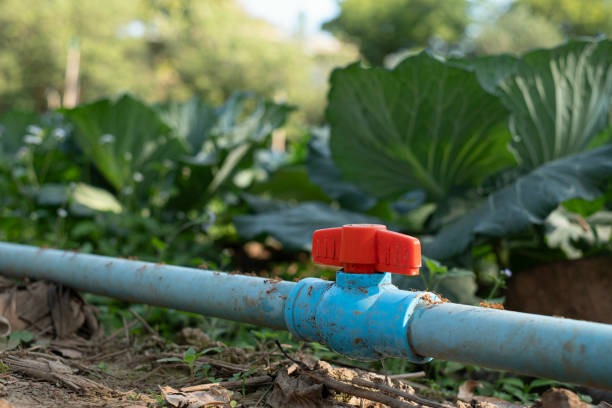
اچو ته انهن مخصوص ڪمن تي نظر وجهون جتي پي وي سي بهترين ڪم ڪري ٿي. لاءِآبپاشي ۽ زراعت، اهي والوز مڪمل آهن. انهن کي زمين ۾ دفن ڪري سگهجي ٿو يا نمي يا ڪيميڪلز کان سنکنرن جي خطري کان سواءِ ڀاڻ جي لائينن سان استعمال ڪري سگهجي ٿو. لاءِسوئمنگ پول ۽ اسپا، پي وي سي پلمبنگ هڪ سبب لاءِ انڊسٽري معيار آهي. اهو ڪلورين، لوڻ، ۽ ٻين پول ڪيميڪلز کان مڪمل طور تي متاثر نه ٿيندو آهي جيڪي جلدي ڌاتو جي حصن کي تباهه ڪري ڇڏيندا آهن. مان هميشه بڊي کي ٻڌايان ٿو تهآبي زراعتمارڪيٽ هڪ بهترين موزون آهي. مڇي پالڻ وارن کي صحيح پاڻي جي ڪنٽرول جي ضرورت آهي، ۽ انهن کي پاڻي ۾ ڪا به ڌاتو ليچ نه ٿي سگهي ۽ انهن جي اسٽاڪ کي نقصان پهچائي سگهي. پي وي سي غير فعال، محفوظ ۽ قابل اعتماد آهي. آخرڪار، ڪنهن به عام ٿڌي پاڻي جي ڪم لاءِ، جيئن اسپرنڪلر سسٽم لاءِ مکيه بندش يا هڪ سادي ڊرين، هڪ پي وي سي بال والو هڪ گهٽ قيمت، باهه ۽ وسارڻ وارو حل فراهم ڪري ٿو جيڪو توهان ڄاڻو ٿا ته توهان کي ضرورت پوندي ته ڪم ڪندو.
پيتل جو بال والو ڇا لاءِ استعمال ٿيندو آهي؟
توهان گرم پاڻي يا دٻيل هوا لاءِ لائن پلمبنگ ڪري رهيا آهيو. هڪ معياري پلاسٽڪ والو خطرناڪ هوندو ۽ ڦاٽڻ جو امڪان آهي. توهان کي هڪ والو جي ضرورت آهي جيڪو ڪم لاءِ ڪافي مضبوط هجي.
A پيتل جو بال والواهو انهن گهربل ايپليڪيشنن لاءِ استعمال ٿيندو آهي جن کي وڌيڪ گرمي برداشت، اعليٰ دٻاءُ جي درجه بندي، ۽ وڌيڪ جسماني استحڪام جي ضرورت هوندي آهي. ان جو سڀ کان عام استعمال گرم پاڻي جي لائينن، قدرتي گئس جي پلمبنگ، ۽ صنعتي ڪمپريسڊ ايئر سسٽم لاءِ آهي.
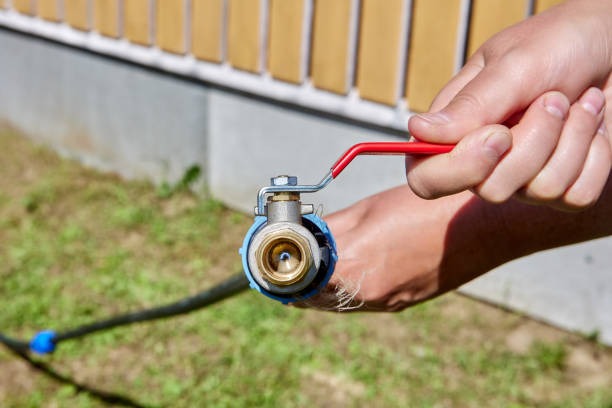
پيتل انهن ڪمن لاءِ ڪم جو هارس آهي جيڪي پي وي سي آساني سان نه ٿا سنڀالي سگهن. ان جي مکيه سپر پاور آهيگرمي مزاحمت. جڏهن ته پي وي سي 140°F (60°C) کان مٿي نرم ٿئي ٿي، پيتل آساني سان 200°F (93°C) کان مٿي گرمي پد کي سنڀالي سگهي ٿو، ان کي گرم پاڻي جي هيٽر ۽ ٻين گرم سيال لائينن لاءِ واحد انتخاب بڻائي ٿو. ايندڙ فائدو آهيدٻاءُ. هڪ معياري پي وي سي بال والو عام طور تي 150 پي ايس آءِ لاءِ درجه بندي ڪئي ويندي آهي. ڪيترائي پيتل بال والو 600 پي ايس آءِ يا وڌيڪ لاءِ درجه بندي ڪيا ويندا آهن، جيڪي انهن کي هاءِ پريشر سسٽم لاءِ ضروري بڻائيندا آهن جهڙوڪڪمپريسڊ ايئر لائينون. آخرڪار، اتي آهيمادي طاقت. پلمبنگ لاءِقدرتي گئس، بلڊنگ ڪوڊس ۾ هميشه ڌاتو والوز جهڙوڪ پيتل جي ضرورت هوندي آهي. باهه لڳڻ جي صورت ۾، پلاسٽڪ والو ڳري ويندو ۽ گئس ڇڏيندو، جڏهن ته پيتل والو برقرار رهندو. ڪنهن به ايپليڪيشن لاءِ جتي گرمي، تيز دٻاءُ، يا باهه جي حفاظت جو خدشو هجي، پيتل صحيح ۽ واحد پيشه ورانه انتخاب آهي.
ٿڪل
پي وي سي ۽ پيتل جي وچ ۾ چونڊ استعمال جي باري ۾ آهي. پي وي سي کي ٿڌي پاڻي ۾ ان جي ناقابلِ شڪست سنکنرن مزاحمت لاءِ چونڊيو ۽ پيتل کي گرمي ۽ تيز دٻاءُ جي خلاف ان جي طاقت لاءِ چونڊيو.
پوسٽ جو وقت: جولاءِ 18-2025


